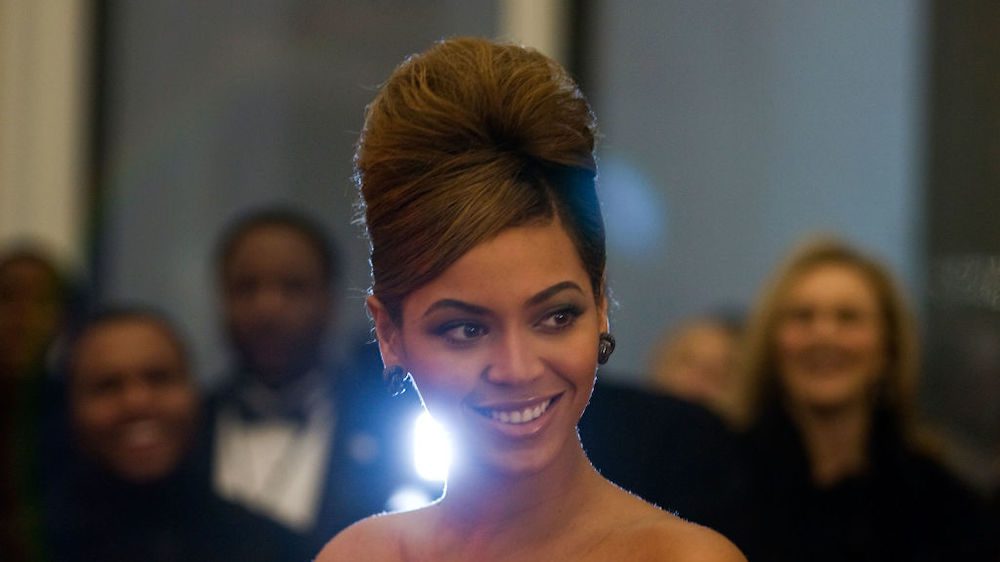
Paul Morigi / Contributor / Getty Images
Queen Bey is literally living up to her name! Yup, Beyoncé Knowles recently revealed in an interview with British Vogue that she’s the proud owner of two beehives in the backyard of one of her palatial homes.
In fact, these buzzy little boxes are home to about 80,000 bees, which produce hundreds of jars of honey. The megawatt pop diva reports this golden elixir contains “countless healing properties” that she feels can help her 3-year-old twins with their allergies.
And as strange as this sounds, there could be some truth to it.
“Many people who have suffered from allergies for years swear they found relief when they started to eat honey in its raw state,” says Frank Licato, an expert beekeeper in Wilkes-Barre, PA.
Think raising bees is a totally random, offbeat hobby? In fact, loads of A-list celebs are into backyard hives, including Martha Stewart, Scarlett Johansson, Morgan Freeman, and even rocker Jon Bon Jovi.
And amateur beekeeping is right on trend this year, joining other popular back-to-the-land activities like planting victory gardens and raising chickens as we continue to stay close to home because of the coronavirus.
To help you decide whether you should join the bee bandwagon in your area, we’ve polled the experts to learn what it’ll cost—as well as some pros and cons.
How much does a beehive cost?
 By The Best Bees Company Boston
By The Best Bees Company Boston
Backyard beehives require only a small investment for the equipment and clothing.
“In terms of the money, you’ll probably spend $500 to get started with the bee colonies and a single hive, which is a small wire and wood box,” says William Hiss, an experienced home beekeeper in Minot, ME.
And newbie beekeepers will also need to shell out for a few tools, including a bee jacket or bee suit, which will run you between $200 and $400 or more.
“And taking a course from a certified master beekeeper means paying a fee as well,” he adds.
How much space does a beehive need?
By The Best Bees Company Boston
If your outdoor space is tight, you can still accommodate bees as a backyard hobby.
“A two-hive setup only needs about 25 square feet of space, along with a nearby water source like a birdbath,” says Licato.
“The necessary space is relatively small—and honeybees can even thrive in tiny urban spaces, too,” adds Frederick Dunn, a bee educator and owner of Fred’s Fine Fowl and Honey Bees.
Just be sure to check whether there are any residential restrictions about keeping bees in your area.
The benefits of a backyard beehive
Fresh honey on tap is an obvious benefit to having your own beehive—and you’ll become very popular if you give it away as gifts to family and friends.
“And having all these honeybees flying around the neighborhood boosts the local pollination, including the valuable milkweeds that so many pollinators depend on,” says Dunn.
Home beekeepers also say this craft is incredibly interesting and, oddly enough, very relaxing. But the more profound, weighty aspect of beekeeping has to do with helping out our food chain.
“Bees are required for up to 40% of what we eat: virtually all fruits, nuts, and a good share of the vegetables, too. So beekeepers are very aware of the dangers of life without bees,” says Hiss.
Can you make money with beehives?
Alas, keeping bees in your backyard isn’t a huge moneymaker, say the pros, so enter this field only if you’re looking for personal satisfaction and to help the environment. In general, hobbyists with a handful of hives will be able to produce honey for themselves and perhaps sell a bit to recover their costs, says Hiss.
“A single hive with a strong colony can make 7 gallons of surplus honey, so at $20 a quart you’ll make $560, minus the cost of jars and labeling,” says Dunn.
But if you’re truly gung-ho, consider 20 hives at least so you can sell as diverse a product line as possible, including liquid honey, comb, and creamed honey; beeswax; soap; lotions; and lip balm, says Licato.
The downsides of beehives
You guessed it: Getting stung is part of the deal when it comes to tending your own bees.
“And your neighbors may be allergic to beestings, which could land you in a lawsuit if you’ve not taken the necessary precautions or complied with community regulations,” says Dunn.
But the biggest con is probably keeping the bees alive, as they can die off at certain times of the year, like in winter or early spring—often due to mites, viruses, or starvation.
“Get educated about the process, find a mentor, and join a local bee club so you learn how to keep the hives from failing,” suggests Licato.
The post The Weird Reason Beyonce Built a Beehive in Her Backyard appeared first on Real Estate News & Insights | realtor.com®.



No comments:
Post a Comment